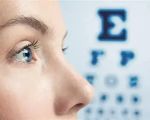Best Optometry Clinics for Treating Age-Related Vision Changes
- 1- Understanding Age-Related Vision Changes
- 2- Importance of Seeking Optometry Care
- 3- Key Treatments for Age-Related Vision Changes
- 4- Choosing the Right Optometry Clinic
- 5- Top Optometry Clinics for Treating Age-Related Vision Changes
- 6- How Eye Docs Can Help with Vision Care
1. Understanding Age-Related Vision Changes
As we age, it's common to experience changes in our vision. This is often a result of natural aging processes, but certain vision problems can also become more prominent as we get older. Common age-related vision changes include presbyopia, cataracts, macular degeneration, and dry eyes. Presbyopia, for instance, is the gradual loss of the eye's ability to focus on nearby objects, typically beginning in the 40s or 50s.
Other conditions like cataracts, which cause clouding of the eye's lens, and macular degeneration, which affects the central vision, are also more prevalent with age. While these conditions are a natural part of aging, they can significantly impact the quality of life if not managed properly. Regular eye exams are crucial for detecting these changes early and for taking steps to mitigate their impact on daily activities.
2. Importance of Seeking Optometry Care
Age-related vision changes are often gradual, and many people might not realize the extent of the changes until they significantly affect their daily tasks. Seeking regular optometry care is essential for maintaining healthy vision as you age. Optometrists are trained to diagnose and treat various vision issues, including those caused by aging. A comprehensive eye exam can identify problems early, providing opportunities for timely treatment that can help prevent further deterioration.
In addition to detecting issues like cataracts or macular degeneration, optometrists can offer solutions to help you cope with age-related vision changes. These might include prescription glasses or contact lenses, surgical options, or lifestyle changes to reduce strain on the eyes. Regular visits to the optometrist ensure that you have access to the best options available to maintain your vision and quality of life.
3. Key Treatments for Age-Related Vision Changes
Several treatments are available to help manage and treat age-related vision changes, depending on the condition. Below are some common options provided by optometry clinics for these vision problems:
1. Prescription Glasses and Contact Lenses
For those dealing with presbyopia or other refractive errors, prescription glasses or contact lenses are often the first line of treatment. These can help improve close-up vision and reduce eye strain, which is especially important when reading or using digital devices. Optometrists can prescribe multifocal lenses or progressive lenses to address vision changes as you age.
2. Cataract Surgery
Cataracts are one of the most common age-related vision issues. Cataract surgery is a highly effective treatment that involves removing the clouded lens and replacing it with an artificial one. This procedure can dramatically improve vision and quality of life for those affected by cataracts.
3. Macular Degeneration Treatments
While there is no cure for macular degeneration, there are treatments that can slow its progression. These may include medications, laser therapy, or specialized nutritional supplements. Early detection is crucial, as prompt intervention can help preserve vision and prevent further damage to the macula.
4. Dry Eye Treatments
Many older adults experience dry eyes due to decreased tear production. Treatments can range from over-the-counter lubricating drops to prescription medications, punctal plugs, or even specific dietary changes. An optometrist will assess the severity of your dry eye symptoms and recommend the most appropriate treatment for you.
4. Choosing the Right Optometry Clinic
When it comes to treating age-related vision changes, choosing the right optometry clinic is essential for receiving the best care. Here are a few factors to consider when selecting an optometry clinic:
1. Expertise in Age-Related Vision Issues
Ensure that the clinic has experience in treating age-related vision changes, such as presbyopia, cataracts, macular degeneration, and dry eyes. An optometrist with expertise in these areas will be able to provide the most effective treatment options tailored to your needs.
2. Access to Advanced Diagnostic Tools
Modern diagnostic tools, such as OCT (Optical Coherence Tomography) and retinal imaging, can help detect early signs of conditions like macular degeneration or diabetic retinopathy. A clinic that uses advanced diagnostic technology will provide a more thorough and accurate diagnosis, which is critical for early intervention.
3. Range of Treatment Options
Look for a clinic that offers a variety of treatment options, from prescription eyewear to surgical solutions. A clinic that offers comprehensive care for age-related vision changes will provide you with multiple options to manage and improve your vision.
4. Positive Patient Reviews and Testimonials
Reading reviews from other patients can provide insight into the quality of care and the overall experience at a particular clinic. Look for positive feedback regarding the staff's professionalism, the effectiveness of treatments, and the clinic's overall atmosphere.
5. Top Optometry Clinics for Treating Age-Related Vision Changes
There are many excellent optometry clinics specializing in the treatment of age-related vision changes. Below are some top-rated clinics that are known for providing high-quality care:
1. The Eye Institute
Located in major cities across the U.S., The Eye Institute offers comprehensive care for age-related vision problems. Their team of experienced optometrists uses advanced technology to diagnose and treat conditions such as cataracts, macular degeneration, and dry eyes.
2. VisionCare Clinic
With a focus on personalized care, VisionCare Clinic provides specialized treatments for aging patients. Their optometrists work with each patient to develop a tailored treatment plan, ensuring the best possible outcomes for managing age-related vision changes.
3. Eye Docs
Eye Docs is renowned for its commitment to treating age-related vision conditions. With a team of expert optometrists and access to the latest diagnostic and treatment options, Eye Docs offers solutions for everything from presbyopia to cataracts and macular degeneration.
6. How Eye Docs Can Help with Vision Care
At Eye Docs, we understand the challenges posed by age-related vision changes. Our expert team is dedicated to providing you with the most advanced treatments, whether it’s prescription glasses, cataract surgery, or managing conditions like macular degeneration. We utilize cutting-edge diagnostic tools and offer a wide range of treatment options to help you maintain clear, healthy vision as you age.
If you're looking for a trusted optometry clinic to help manage your age-related vision changes, visit Eye Docs for a comprehensive eye exam and personalized care.








